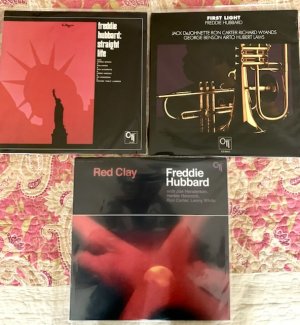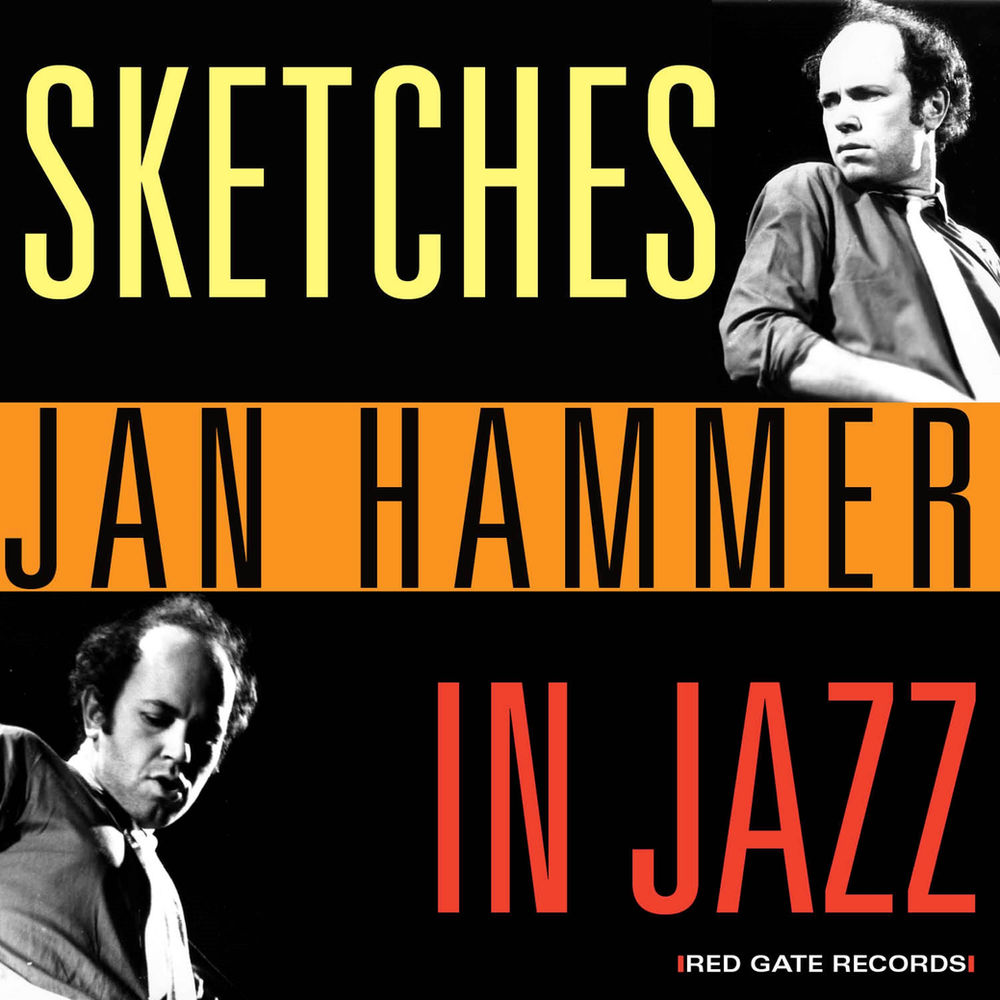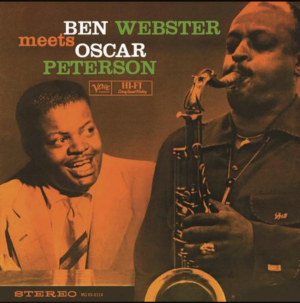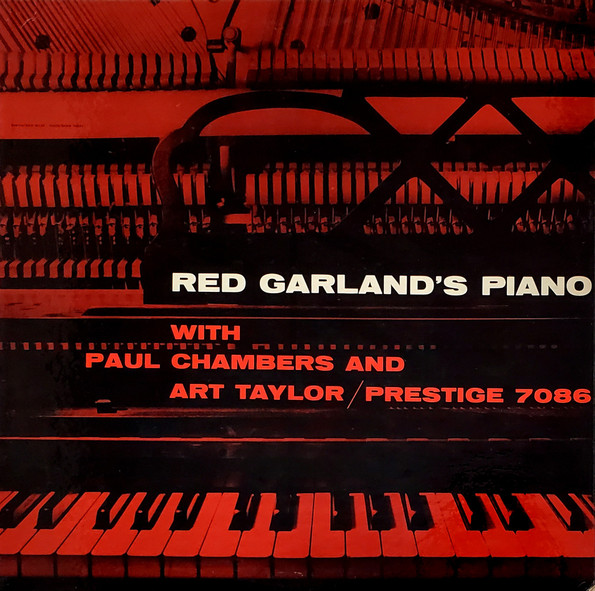You are using an out of date browser. It may not display this or other websites correctly.
You should upgrade or use an alternative browser.
You should upgrade or use an alternative browser.
All That Jazz ...
- Thread starter Nikhil
- Start date
Jayant_S
Well-Known Member
Jayant_S
Well-Known Member
Povo appears on the "In Concert" live set with Hubbard and Stanley T, but that version sorely misses George Benson. Agreed about the Sky Dive version bring incredible!Exactly the same playlist here
The only addition is Sky Dive. Not at the same level as Red Clay or Straight Life, but ‘Provo’ is an incredible 15 minutes of steaming funk. Do check out.
Fiftyfifty
Well-Known Member
Great label CTI. One other that I admire is ECM. And there was Pablo from Norman Granz. What an era!
acemachine26
Well-Known Member
Love CTI. Here's another great record from the label featuring Hubbard, Roland Kirk and Hubert Laws among others.


Speaking of CTI, here’s some more.
The Hubbard is funky as expected, but the Weston is hotter; Great mix of modal, post bop and fusion with a dollop of funk.
The Byrd is also fusion with a groove, a la Miles around the Bitches Brew period.
Mabumi Yamaguchi is a new discovery. And check out the rhythm section! Vitous and Williams, in particular, are just smoking hot.
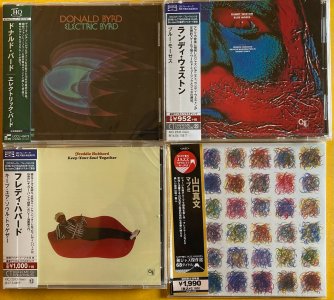
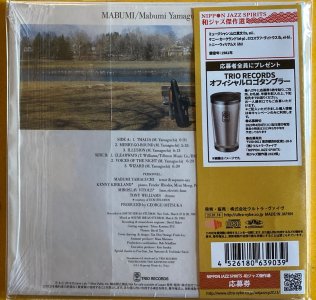
The Hubbard is funky as expected, but the Weston is hotter; Great mix of modal, post bop and fusion with a dollop of funk.
The Byrd is also fusion with a groove, a la Miles around the Bitches Brew period.
Mabumi Yamaguchi is a new discovery. And check out the rhythm section! Vitous and Williams, in particular, are just smoking hot.


Sushant Sharma
Well-Known Member
Carmell Jones The remarkable...news of the album being reissued made me play it. Looked closely Harold Land plays on the album. Clifford Brown and band part deux?? It is a 'remarkable' album I seem to have missed thus far.
jaiwant_alex
Active Member
acemachine26
Well-Known Member
Top tier Arabian jazz led by oud master Rabih Abou-Khalil along with Charlie Mariano, Kenny Wheeler, Steve Swallow & Ramesh Shotham among others.


Top tier Arabian jazz led by oud master Rabih Abou-Khalil along with Charlie Mariano, Kenny Wheeler, Steve Swallow & Ramesh Shotham among others.

This is a really interesting album!
Enjoying it right now. Thanks for sharing.
.

“Jazz and communist East Germany seem unlikely bedfellows. Yet in 1965 Louis Armstrong became the first American entertainer to play jazz there at the height of the Cold War. East Germans celebrated Armstrong, and his visit became a propaganda victory for East Germany, helping it to boost its reputation in the wake of its oppressive government building the Berlin Wall in 1961. On his brief and only tour through East Germany Armstrong played to packed houses. His popularity surprised the authorities very much considering not one record of him was available before 1965 and one's passion for the music could land you in prison. Kevin Le Gendre peeks through the former Iron Curtain to discover the dangers jazz lovers faced to pave the way for these legendary concerts to happen. He speaks to jazz journalist Karlheinz Drechsel who first risked his career for jazz but then had the privilege to accompany Louis Armstrong on the tour and announce his concerts. He tells Kevin what it was like meeting Louis Armstrong. Armstrong not only had to navigate political sensitivities on the Cold War front between East and West, but also on the home front in the US, when questioned about the Civil Rights Movement, which was at its peak. With contributions from journalists Siegfried Schmidt-Joos and Leslie Colitt, the jazz fan Volker Stiehler, jazz journalist Detlef Ott, authors Ricky Riccardi and Stephan Schulz, pianist Ulrich Gumpert, and Roland Trisch, who worked at East Germany’s Artists Agency, which enabled Louis Armstrong’s tour. Archive material of the Selma to Montgomery march in Alabama on 7 March 1965 is courtesy of the Robert H Jackson Center.”
I’ve heard similar stories with respect to jazz in the USSR. Freedom of thought and expression were not the calling cards of communism, I guess.
“Jazz and communist East Germany seem unlikely bedfellows. Yet in 1965 Louis Armstrong became the first American entertainer to play jazz there at the height of the Cold War. East Germans celebrated Armstrong, and his visit became a propaganda victory for East Germany, helping it to boost its reputation in the wake of its oppressive government building the Berlin Wall in 1961. On his brief and only tour through East Germany Armstrong played to packed houses. His popularity surprised the authorities very much considering not one record of him was available before 1965 and one's passion for the music could land you in prison. Kevin Le Gendre peeks through the former Iron Curtain to discover the dangers jazz lovers faced to pave the way for these legendary concerts to happen. He speaks to jazz journalist Karlheinz Drechsel who first risked his career for jazz but then had the privilege to accompany Louis Armstrong on the tour and announce his concerts. He tells Kevin what it was like meeting Louis Armstrong. Armstrong not only had to navigate political sensitivities on the Cold War front between East and West, but also on the home front in the US, when questioned about the Civil Rights Movement, which was at its peak. With contributions from journalists Siegfried Schmidt-Joos and Leslie Colitt, the jazz fan Volker Stiehler, jazz journalist Detlef Ott, authors Ricky Riccardi and Stephan Schulz, pianist Ulrich Gumpert, and Roland Trisch, who worked at East Germany’s Artists Agency, which enabled Louis Armstrong’s tour. Archive material of the Selma to Montgomery march in Alabama on 7 March 1965 is courtesy of the Robert H Jackson Center.”
BTW, the mention of Selma reminded me of this incredible track from Grant Green’s ‘His Majesty King Funk’. Harold Vick is on tenor:

“Jazz and communist East Germany seem unlikely bedfellows. Yet in 1965 Louis Armstrong became the first American entertainer to play jazz there at the height of the Cold War. East Germans celebrated Armstrong, and his visit became a propaganda victory for East Germany, helping it to boost its reputation in the wake of its oppressive government building the Berlin Wall in 1961. On his brief and only tour through East Germany Armstrong played to packed houses. His popularity surprised the authorities very much considering not one record of him was available before 1965 and one's passion for the music could land you in prison. Kevin Le Gendre peeks through the former Iron Curtain to discover the dangers jazz lovers faced to pave the way for these legendary concerts to happen. He speaks to jazz journalist Karlheinz Drechsel who first risked his career for jazz but then had the privilege to accompany Louis Armstrong on the tour and announce his concerts. He tells Kevin what it was like meeting Louis Armstrong. Armstrong not only had to navigate political sensitivities on the Cold War front between East and West, but also on the home front in the US, when questioned about the Civil Rights Movement, which was at its peak. With contributions from journalists Siegfried Schmidt-Joos and Leslie Colitt, the jazz fan Volker Stiehler, jazz journalist Detlef Ott, authors Ricky Riccardi and Stephan Schulz, pianist Ulrich Gumpert, and Roland Trisch, who worked at East Germany’s Artists Agency, which enabled Louis Armstrong’s tour. Archive material of the Selma to Montgomery march in Alabama on 7 March 1965 is courtesy of the Robert H Jackson Center.”
Ooof!! What a fantastic share Moktan! Going to save this for the weekend.
.
jaiwant_alex
Active Member

“Jazz and communist East Germany seem unlikely bedfellows. Yet in 1965 Louis Armstrong became the first American entertainer to play jazz there at the height of the Cold War. East Germans celebrated Armstrong, and his visit became a propaganda victory for East Germany, helping it to boost its reputation in the wake of its oppressive government building the Berlin Wall in 1961. On his brief and only tour through East Germany Armstrong played to packed houses. His popularity surprised the authorities very much considering not one record of him was available before 1965 and one's passion for the music could land you in prison. Kevin Le Gendre peeks through the former Iron Curtain to discover the dangers jazz lovers faced to pave the way for these legendary concerts to happen. He speaks to jazz journalist Karlheinz Drechsel who first risked his career for jazz but then had the privilege to accompany Louis Armstrong on the tour and announce his concerts. He tells Kevin what it was like meeting Louis Armstrong. Armstrong not only had to navigate political sensitivities on the Cold War front between East and West, but also on the home front in the US, when questioned about the Civil Rights Movement, which was at its peak. With contributions from journalists Siegfried Schmidt-Joos and Leslie Colitt, the jazz fan Volker Stiehler, jazz journalist Detlef Ott, authors Ricky Riccardi and Stephan Schulz, pianist Ulrich Gumpert, and Roland Trisch, who worked at East Germany’s Artists Agency, which enabled Louis Armstrong’s tour. Archive material of the Selma to Montgomery march in Alabama on 7 March 1965 is courtesy of the Robert H Jackson Center.”
The above link points to the "live now" page of BBC.
The link to the programme is below. Thanks for sharing this !!
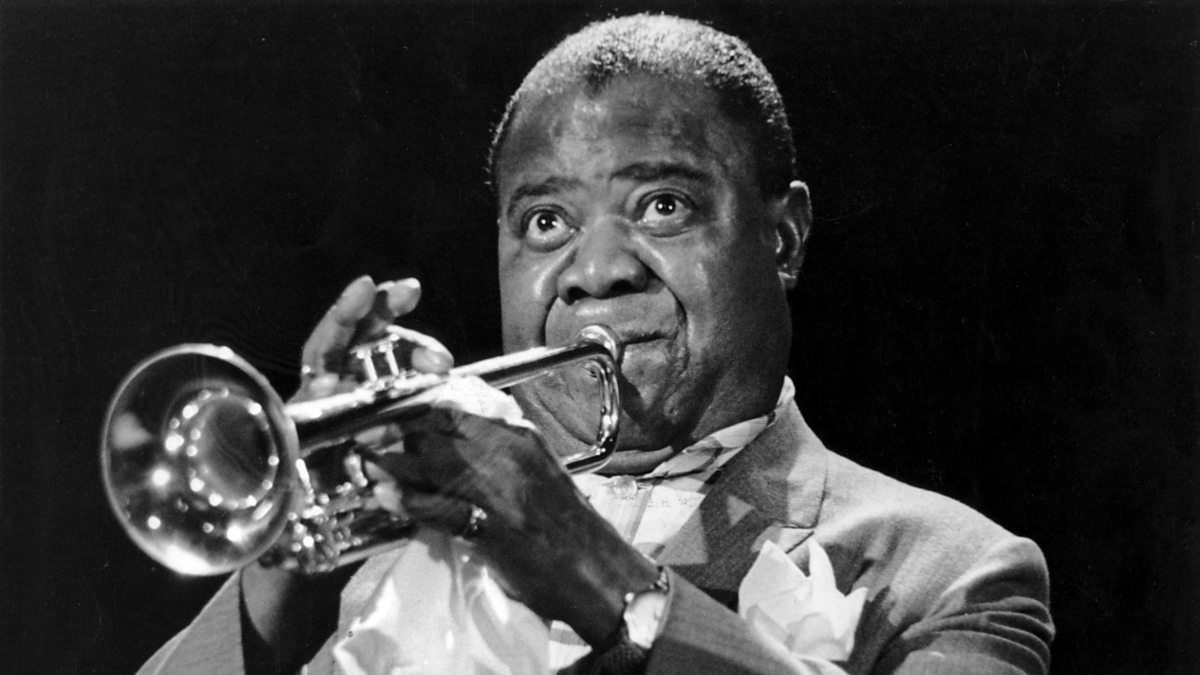
BBC World Service - The Documentary, Cold War in full swing
Kevin Le Gendre discovers how Louis Armstrong came to play jazz in communist East Germany
Wharfedale Linton Heritage Speakers in Red Mahogany finish at a Special Offer Price. BUY now before the price increase.
Similar threads
- Replies
- 5
- Views
- 965
- Replies
- 7
- Views
- 2K
- Replies
- 1
- Views
- 5K
- Replies
- 14
- Views
- 11K
- Replies
- 4
- Views
- 8K


